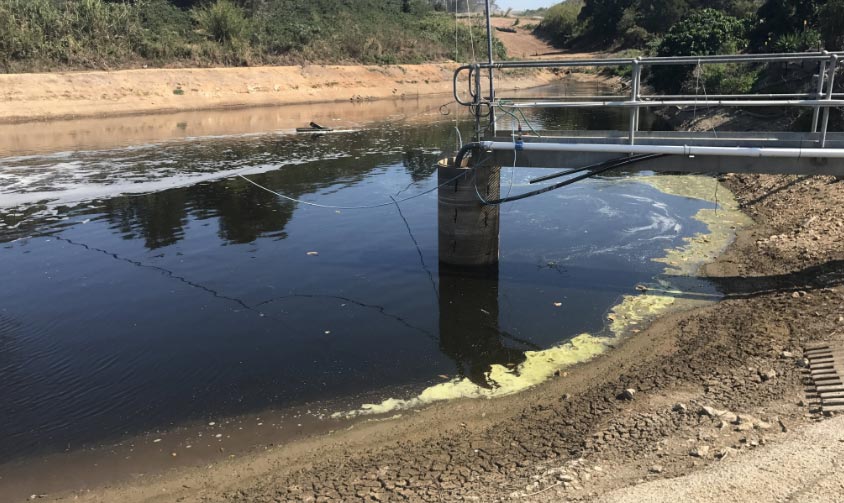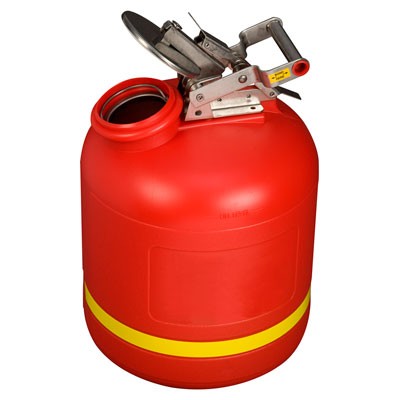Comprehending the Comprehensive Refine of Liquid Garbage Disposal: Finest Practices and Environmental Impact Factors To Consider
The administration of liquid waste disposal is a multifaceted problem that requires a detailed understanding of various finest methods and their associated ecological influences. From the kinds of liquid waste produced to the techniques employed for collection, therapy, and final disposal, each step plays an essential role in protecting communities and public health.
Types of Fluid Waste
Recognizing the different kinds of fluid waste is essential for reliable management and disposal techniques. Fluid waste can be broadly categorized right into a number of types, each requiring one-of-a-kind handling and therapy strategies.
Industrial liquid waste commonly contains harmful products, consisting of hefty steels, solvents, and chemicals, generated throughout manufacturing processes. These wastes require stringent governing conformity to safeguard human wellness and the atmosphere. Residential fluid waste primarily describes wastewater produced from families, consisting of sewage and greywater, which, although much less hazardous, can still pose significant dangers if incorrectly managed.
Agricultural liquid waste, including drainage from farms, often contains plant foods and chemicals that can bring about environmental destruction if not treated appropriately. Medical liquid waste, produced from health care facilities, includes contaminated fluids such as physical liquids and chemicals, calling for specialized disposal approaches to avoid infection and environmental contamination.
Lastly, oil and oil waste, typically created by restaurants and vehicle industries, can create severe obstructions in drain systems if not handled appropriately. Understanding these classifications facilitates targeted approaches for therapy, conformity with guidelines, and effective disposal techniques, inevitably promoting environmental sustainability and public health and wellness safety.

Collection Approaches
Efficient collection techniques are essential for the appropriate monitoring of liquid waste, guaranteeing that it is collected safely and efficiently before treatment or disposal. Different methods are utilized relying on the sort of fluid waste created, the volume, and the certain attributes of the waste.
One usual technique is the use of devoted collection tanks or sumps, which are created to catch fluid waste at the source. These systems commonly include pumps that promote the transfer of waste to larger storage containers or treatment centers. Furthermore, mobile collection systems outfitted with vacuum cleaner technology are used in scenarios where waste is produced periodically or in hard-to-reach locations.
For industrial settings, closed-loop systems can properly decrease spills and leakages, enabling the healing and reuse of liquid waste. It is additionally necessary to educate personnel on appropriate collection protocols to mitigate threats connected with harmful substances.
In addition, carrying out regular maintenance routines for collection tools ensures optimum performance and safety. The assimilation of advanced tracking systems can boost collection efficiency by giving real-time information on waste levels and potential risks. Generally, reliable collection techniques are fundamental to sustainable fluid waste monitoring practices.
Therapy Processes
Therapy procedures play a vital duty in the monitoring of liquid waste, transforming possibly unsafe materials right into recyclable sources or secure effluents - liquid waste disposal. These processes can be extensively categorized into physical, chemical, and organic approaches, each customized to address specific pollutants present in the waste stream
Physical treatment techniques, such as sedimentation and purification, work by getting rid of suspended solids and particle issue. These strategies are frequently the primary step in the therapy chain, effectively decreasing the tons on succeeding procedures. Chemical therapies involve making use of reagents to counteract dangerous compounds, speed up heavy metals, or oxidize natural toxins, therefore boosting the security of the effluent.
Organic therapy processes, including activated sludge systems and anaerobic food digestion, maximize the natural capacities of microbes to degrade raw material. These methods are specifically efficient for wastewater including eco-friendly toxins. Advanced treatment innovations, such as membrane layer filtration and progressed oxidation procedures, are increasingly used to achieve greater degrees of filtration.
Incorporating a mix of these therapy techniques not only guarantees compliance with regulative my company standards but additionally advertises ecological sustainability by go to this site recovering beneficial resources from fluid waste.
Disposal Options
How can companies make sure the secure and responsible disposal of liquid waste? Efficient disposal options are vital for securing public wellness and the setting. The main techniques include land disposal, therapy, and incineration followed by discharge right into municipal wastewater systems.
Land disposal involves the cautious control of liquid waste in designated landfills, ensuring that it does not leach right into bordering dirt or water. Incineration, on the other hand, subjects fluid waste to high temperature levels, converting it right into ash and gases, which call for appropriate filtration to decrease emissions. This approach appropriates for contaminateds materials that can not be treated with typical means.
In instances where liquid waste can be dealt with, organizations might select chemical or organic therapy procedures to reduce the effects of hazardous parts before releasing the dealt with effluent right into community systems. This course normally lines up with governing demands, ensuring that the effluent fulfills safety and security criteria.
Ultimately, companies have to conduct complete evaluations of each disposal choice to identify its feasibility, thinking about elements such as waste composition, regulative compliance, and potential risks to health and wellness and the setting. By picking proper disposal methods, companies can add to a liable waste administration method.
Environmental Impact
The environmental effect of liquid waste disposal is a crucial consideration for companies looking for to decrease their eco-friendly impact. Furthermore, the discharge of neglected or inadequately treated waste into surface area waters can result in eutrophication, leading to oxygen depletion and the succeeding fatality of fish and other organisms.

To minimize these effects, companies need to adopt finest practices such as applying extensive waste treatment processes, promoting recycling and reuse, and sticking to regulative requirements. By taking a proactive strategy to fluid waste monitoring, entities can substantially lower their ecological impact while supporting sustainable growth objectives. Inevitably, a thorough understanding of the environmental impacts connected with liquid waste disposal is necessary for informed decision-making and responsible stewardship of all-natural sources.
Final Thought
Reliable administration of liquid waste is crucial for safeguarding ecological stability and public health and wellness. Eventually, a comprehensive understanding of fluid waste disposal not go right here just minimizes environmental influences yet likewise promotes a commitment to accountable source administration and environmental stewardship.
The management of fluid waste disposal is a diverse problem that requires an extensive understanding of numerous best practices and their associated ecological impacts. From the kinds of fluid waste created to the techniques utilized for collection, treatment, and last disposal, each action plays an essential function in protecting environments and public wellness.The ecological influence of liquid waste disposal is a vital consideration for companies looking for to reduce their ecological footprint. Eventually, a comprehensive understanding of the ecological effects connected with fluid waste disposal is important for educated decision-making and responsible stewardship of natural resources.
Inevitably, a comprehensive understanding of fluid waste disposal not only reduces ecological influences however also promotes a dedication to responsible source management and environmental stewardship.